Posted on 3/21/2024
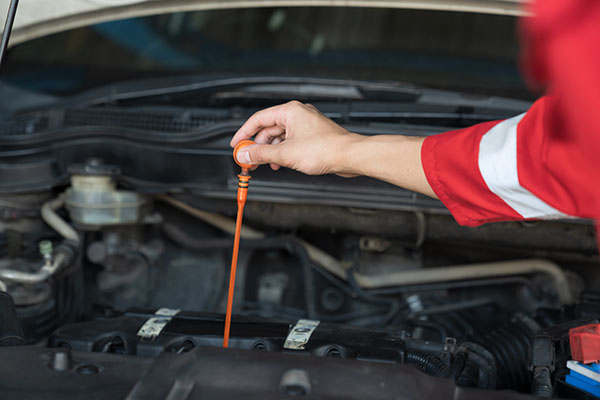
Your sense of smell can be a powerful tool for detecting potential issues with your car before they escalate into costly repairs or safety hazards. Different car smells can indicate various problems, from minor issues to more significant mechanical failures. Let's explore some common car smells and what they might mean for your vehicle's health. 1. Sweet or Syrupy Odor A sweet or syrupy odor in your car could indicate a coolant leak. Coolant, also known as antifreeze, circulates through the engine to regulate temperature. If you detect a sweet smell and notice coolant pooling under your car or steam emanating from the engine bay, it's essential to address the leak promptly to prevent overheating and engine damage. 2. Burnt Rubber Smell A burnt rubber smell could indicate several potential issues, including overheated brakes, slipping drive belts, or melting hoses. If you notice a burnt rubber odor while driving, pull over safely and ins ... read more
Posted on 1/27/2024
.jpeg)
What does your car's electrical system do? It's the very heartbeat that keeps it alive and running. This intricate maze of wires and components is the main reason behind your vehicle's smooth operation. Below, we will take you on an enlightening journey to unravel the mysteries of this vital system, so don't skip out. Battery, Alternator, and Starter Our adventure begins with the core components of your car's electrical system: the battery, alternator, and starter. The battery, a reservoir of energy, quietly and reliably powering your car's electrical needs. The alternator is a diligent worker, tirelessly charging the battery and keeping the electrical current flowing. And the starter? It's the spark that ignites the eng ... read more
Posted on 12/3/2023
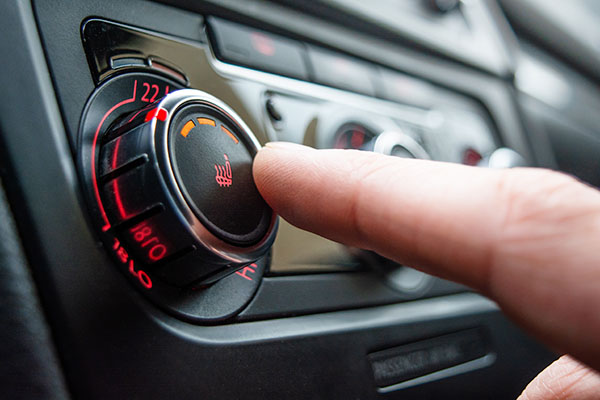
As winter's chill settles in, one of the most appreciated features in our cars becomes the heating system. But have you ever wondered how your car manages to keep you warm and cozy in the frosty months? Read on to learn more about your automobile’s heating system and what role it plays in keeping you and your loved ones comfortable throughout winter. The Science of Car Heating Your car's heating system operates on a straightforward principle: it uses the engine's excess heat to warm the cabin. Here's how it works from start to finish: Heat Generation: The engine generates heat as it runs. A portion of this heat is used to warm up your car. Heat Transfer: Coolant, a mixture of water and antifreeze, circulates through the engine, absorbing heat. Radiator: The heated coolant flows through a radiator, dissi ... read more
Posted on 11/28/2023
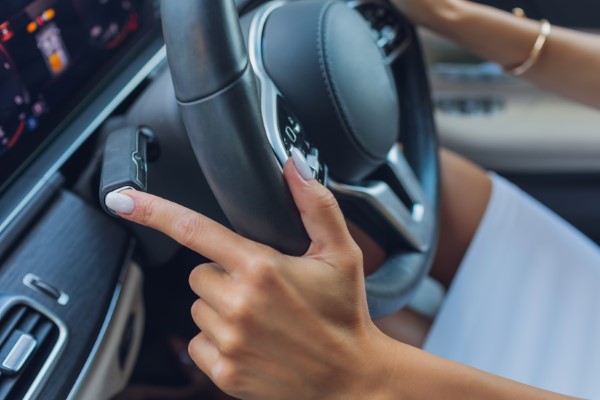
We all know how unpredictable the roads can be, which is why road safety is more important than ever. Accidents can happen in an instant, and taking precautions can make all the difference. Let's make sure we're all doing our part to stay safe on the roads and protect ourselves and those around us. Defensive Driving Techniques One of the fundamental aspects of staying safe on the road is practicing defensive driving. This involves maintaining a safe following distance, being aware of blind spots, and anticipating the actions of other drivers. By adopting these techniques, drivers can significantly reduce the risk of collisions. Vehicle Maintenance Regular vehicle maintenance is crucial for road safety. Simple tasks like checking the brakes, ensuring tire safety, and scheduling regular check-ups can go a long way in preventing accidents cau ... read more
Posted on 10/10/2023
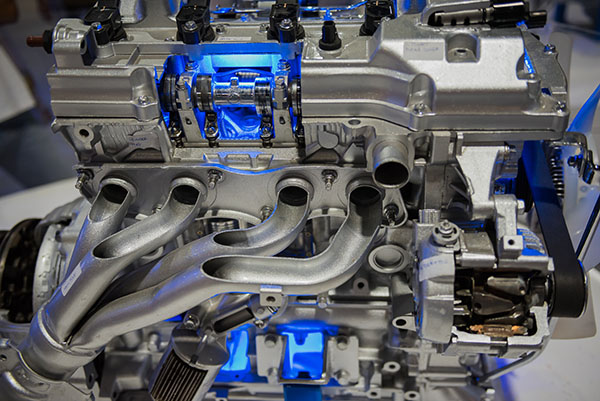
We often take our car's ABS (Anti-lock Braking System) for granted. It's that unsung hero that quietly keeps us safe when we hit the brakes hard. But to ensure it continues to perform its life-saving duties, a little care is in order. Understanding Your ABS Before we get into maintenance, let's briefly understand how your ABS works. This system prevents your wheels from locking up during heavy braking, allowing you to maintain control and steer the vehicle. It does this by pulsing the brakes rapidly, much faster than humanly possible. So, if your ABS kicks in, you'll feel a pulsing sensation in the brake pedal – that's your ABS doing its job. Routine Checks and Cleaning Your ABS system benefits from regular visual inspections. Check for any visible damage to the wheel speed sensors, which are responsible for detec ... read more
Posted on 9/29/2023

Your vehicle is a marvel of engineering, and beneath its sleek exterior lies a network of sensors that silently work to keep everything running smoothly. Get ready to uncover their function and the ways they can be kept working for as long as possible. 1. The Oxygen Sensor (O2 Sensor) The oxygen sensor, often referred to as the O2 sensor, is your vehicle's environmental conscience. It monitors the amount of oxygen in your exhaust gasses and helps the engine control unit (ECU) adjust the air-fuel mixture for optimal combustion. In simple terms, it ensures your engine is running efficiently and not producing excessive emissions. How to Maintain It: Make sure that wires are correctly connected and working. Avoid using leaded gasoline, as it can damage the O2 sensor. Keep your engine well-tuned to prevent running too rich or too lean, which can affect the sensor's ... read more
Posted on 8/30/2023

Picture this: you're nestled in the cozy cocoon of your car, ready to embark on a journey. You press buttons with eager anticipation, expecting your vehicle to respond with its usual symphony of sounds and motions. But then, a perplexing silence ensues – your car's buttons seem to have lost their voice. Before frustration takes the wheel, let's dive into the intriguing world of automotive electronics and explore the reasons why you might find yourself clicking buttons in your car, yet nothing seems to be happening. The Digital Command Center - The Simple Button In the modern automotive landscape, buttons aren't just ordinary fixtures; they're gateways to a world of technology. From adjusting the climate control to selecting your favorite radio station, these buttons communicate your desires to a complex network of sensors, circuits, and modules. However, as with any intricate system, glitches can occasionally occur, leaving you in a state of ... read more
Posted on 7/30/2023
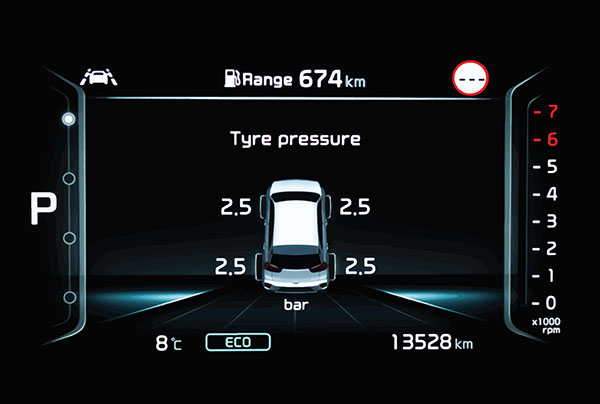
The Tire Pressure Monitoring System (TPMS) is a valuable safety feature that alerts drivers when their vehicle's tire pressure is significantly low. If you own a Honda Civic and have recently adjusted your tire pressure or replaced a tire, you may need to reset the TPMS to ensure accurate readings. Here is a step-by-step guide on how to reset the TPMS on your Honda Civic, allowing you to maintain optimal tire pressure and drive with peace of mind: Step 1: Ensure all tires are properly inflated Before attempting to reset the TPMS, it's essential to ensure that all four tires are properly inflated to the recommended tire pressure specified in your vehicle's owner's manual or on the driver's side door jamb. Use a reliable tire pressure gauge to check and adjust the pressure as needed. Step 2: Turn on the ignition Insert the key into the ignition and turn it to the "ON" position. Do not start the engine; simply power up th ... read more
Posted on 6/29/2023
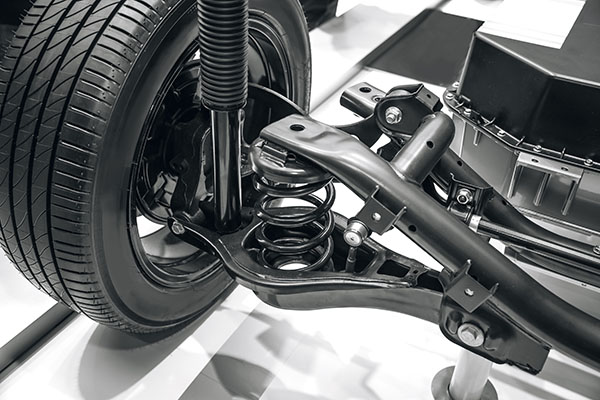
The suspension system of a vehicle plays a vital role in ensuring a smooth and controlled ride. Over the years, automotive engineers have developed various types of suspension systems to enhance comfort, handling, and overall performance. We will go into three distinct types of suspension systems: leaf springs, elliptical springs, and modern suspensions. |Leaf Spring Leaf springs are one of the earliest and simplest forms of suspension systems. They consist of multiple layers of flexible metal strips, or "leaves," stacked on top of each other. These springs are arranged longitudinally and mounted along the axles of the vehicle. Leaf springs offer excellent load-carrying capacity and durability, making them commonly used in trucks and heavy-duty vehicles. While they provide adequate support for heavy loads, leaf springs can be relatively stiff, resulting in a rougher ride quality compared to more advanced suspension systems. |Elliptical Spring ... read more
Posted on 5/31/2023
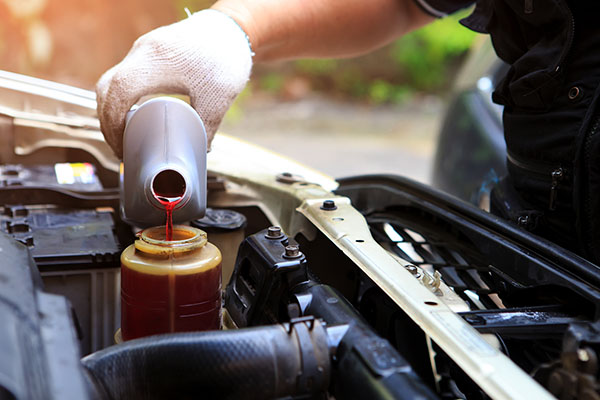
Your car is a complex machine with various systems working together to keep it running smoothly and efficiently. Behind the scenes, several fluids play crucial roles in the proper functioning of your vehicle. Understanding the different types of fluids your car requires is essential for its maintenance and longevity. In this blog, we will take a look at the important fluids found in most cars and their functions. 1. Engine Oil Engine oil is perhaps the most well-known fluid in a car. It lubricates the engine's moving parts, reducing friction and preventing excessive wear and tear. Engine oil also helps to dissipate heat, prevents corrosion, and keeps the engine clean by trapping dirt and debris. Regularly checking and changing your engine oil according to the manufacturer's recommendations is vital for the health of your engine. 2. Transmission Fluid Transmission fluid is responsible for lubricating the gears and components within th ... read more